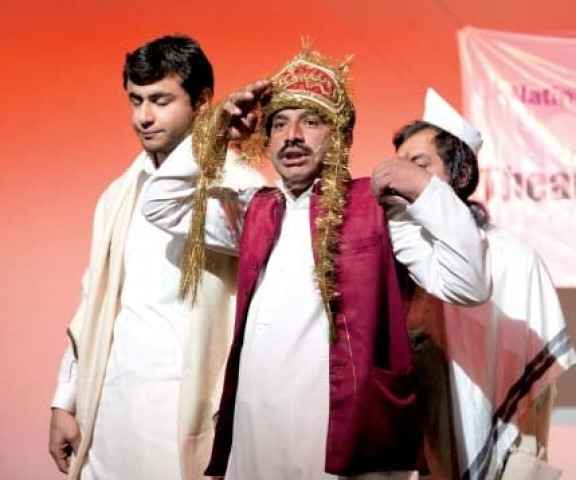Making a case for the silenced
Child marriages and female imprisonment issues highlighted at Lok Virsa.

Beginning with a mime performance about a young girl being enticed by the seven deadly sins in the Comsats Institute of Information Technology (CIIT) production “Karma is a Bitch”, the play reflected a thoughtful performance about the nature of temptation.
Greed, sloth, lust, gluttony, vanity, envy, wrath each came forward to envelop the girl and though there were strong performances all around, much was lost in interpretation due to the unfamiliarity of the audience with mime. As each sin overcame her, the play ended with her being sucked into a whirlpool of sins as they dragged her to make her their own – the conclusion of Ghost (1990) comes to mind.
The dilemma of child marriages and the nature of their families being tempted by lechery and money formed the subject of the second short play performed by the Bedari Theatre group. A young woman tries to stop the marriage of a young fourth grade girl from being married off to a lecherous man, and complains to the police.
Following the complaint, both the family performing the marriage and the maulvi sahib willing to perform the child marriage are imprisoned. Their subsequent release after paying the meagre Rs1,000 fine informed the audience that there are only two punishments for child marriages: paying a negligible fine or serving a one month imprisonment. The play stressed the need to demand a legal punishment against child marriages, which will help in curtailing such practices.
CIIT students concluded the showcase by a mime on the atrocities faced by women in jails at the behest of both male and female prison guards and their rehabilitation into society. The play opens with three female prisoners facing both physical and emotional abuse at the hands of male guards aided by a female guard.
On release, the former prisoners are persecuted by their families for ruining the family honour. The plays ends on a heartbreaking note where one is murdered by her family, another commits suicide and the third find the strength to walk on, into an uncertain future.
During intervals between each performance, poetry by Kishwar Naheed and Faiz Ahmed Faiz were recited by organisers Munir Ahmed and Safeerullah Khan.
Though the plays received applause and were thought-provoking, their messages did not reach all the intended audiences, as the auditorium lacked both families and women.
Published in The Express Tribune, March 12th, 2012.



















COMMENTS
Comments are moderated and generally will be posted if they are on-topic and not abusive.
For more information, please see our Comments FAQ